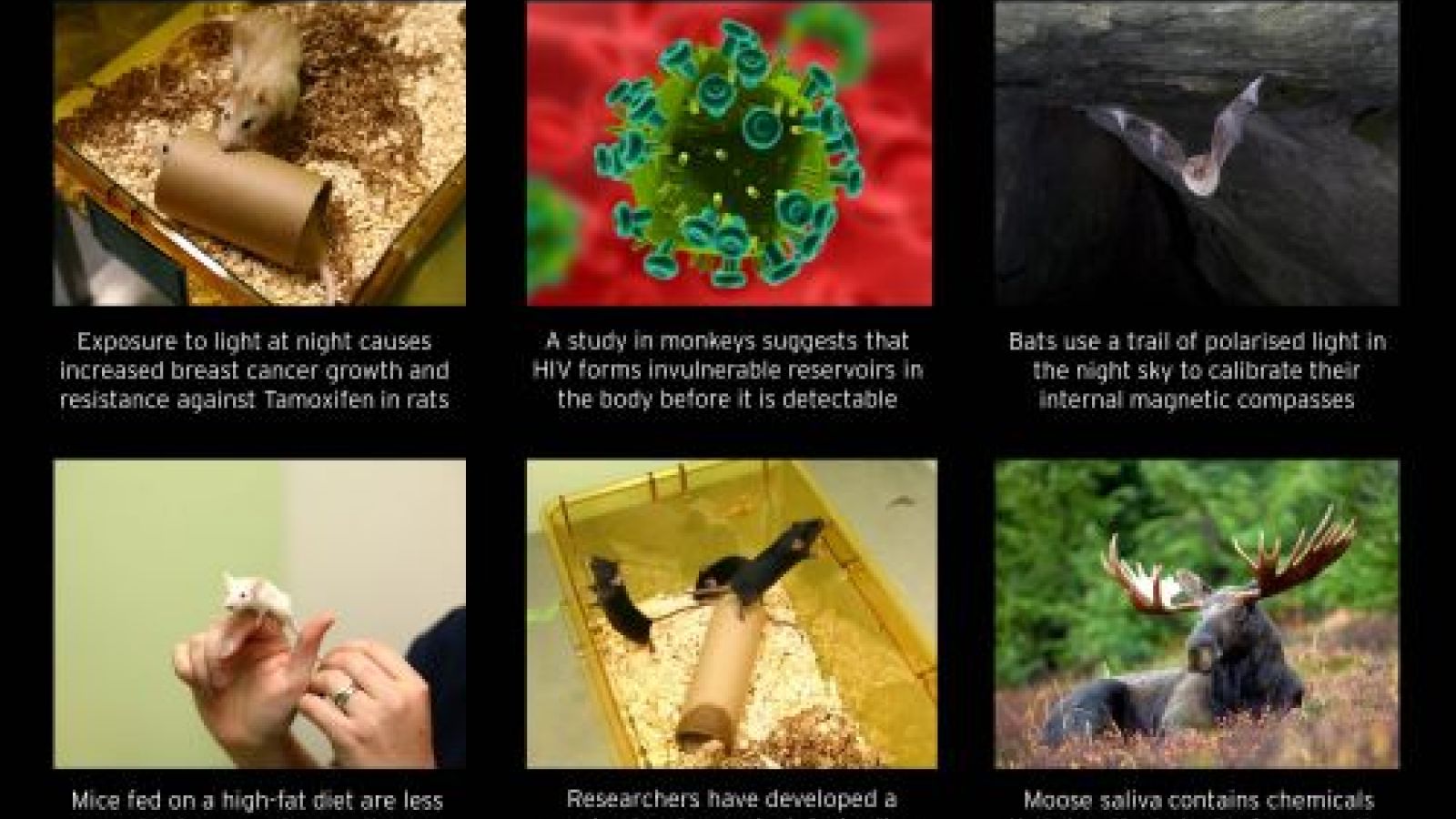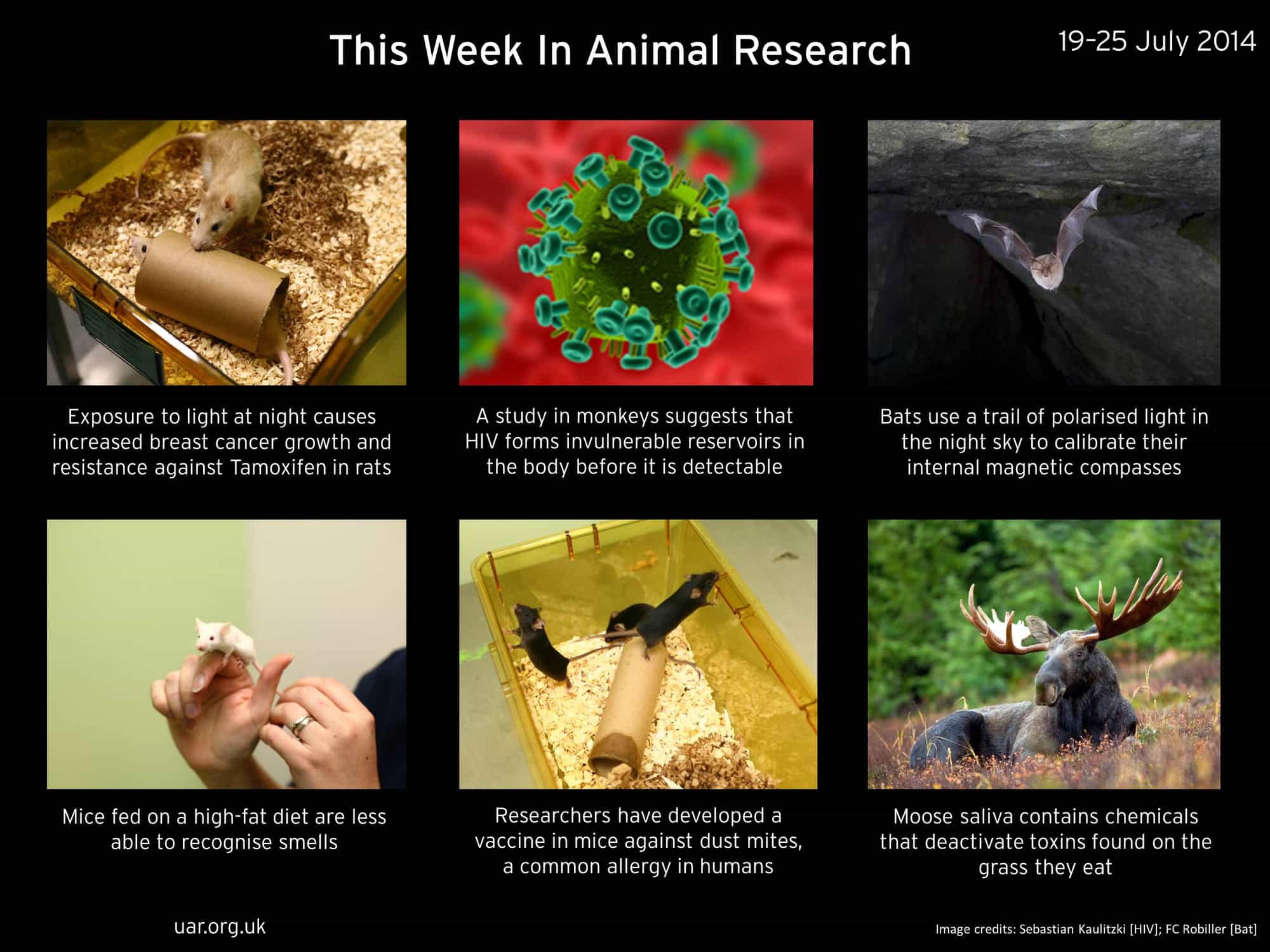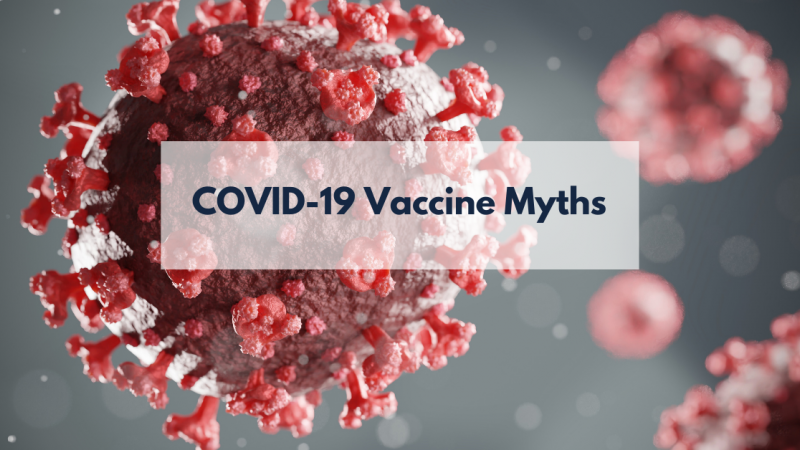

Research in rats suggests that breast cancer patients should avoid even low levels of light in the bedroom. Light in the evening before bed lowers levels of melatonin, an important sleep hormone. However, rats with lower levels of melatonin developed tumours that were bigger and were more resistant to Tamoxifen. Giving the rats melatonin supplements helped to reverse this trend, but the researchers are not advocating that patients buy melatonin over the counter.
http://www.bbc.co.uk/news/health-28442551
HIV appears to rapidly form highly invulnerable “viral reservoirs” throughout the body even before the virus can be detected in the blood, according to studies of monkey equivalent of the disease. It was believed that early treatment with anti-retrovirals could prevent these reservoirs from forming, but it now appears that once drug treatment is discontinued the virus will re-emerge. This discovery follows news earlier this month that the virus had re-emerged in a baby thought to have been cured with treatment hours after birth.
http://www.bbc.co.uk/news/health-28352370
Bats set their compass by a lingering trail of polarised light in the night sky. As the sun passes during the day it leaves behind an arc running from north to south, which cannot be seen by the naked eye. The bats are the first known mammal to use this polarisation pattern in the sky, which they use to calibrate their magnetic compass.
http://www.thetimes.co.uk/tto/science/article4154785.ece
Mice fed high-fat diets were less able to recognise a specific odour having lost 50% of the brain cells that recognise the signals. The high fat diet is linked to major structural and functional changes in the nasal system.
http://www.dailymail.co.uk/health/article-2701382/Junk-food-destroy-sense-SMELL-scientists-warn.html
A vaccine for dust-mite allergies has been created. In lab tests and animal trials, the nano-sized vaccine package was readily absorbed by immune cells and dramatically lowered allergic responses.
http://now.uiowa.edu/2014/06/researchers-create-vaccine-dust-mite-allergies
Moose saliva contains certain chemicals that can deactivate a toxin found on red fescue, a grass that forms a major part of their diet. The toxin, ergovaline, is produced by a fungus that grows on the grass and can cause grazing animals to lose parts of their feet, tails and ears.
http://www.newscientist.com/article/dn25938-zoologger-moose-dribble-turns-off-grasss-toxic-defences.html#.U9Irz_ldWcc
Last edited: 10 March 2022 19:19



